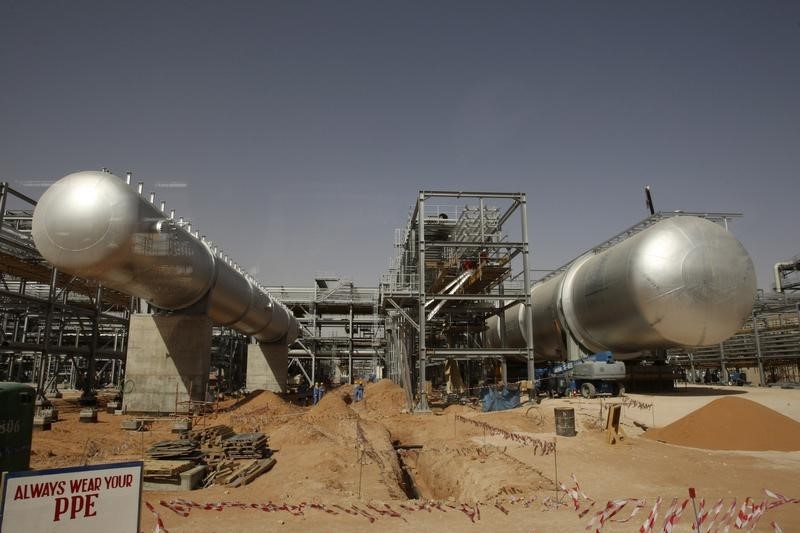Investing.com - West Texas Intermediate oil futures extended heavy losses on Wednesday, after data showed that oil supplies in the U.S. rose to the highest level on record, exacerbating fears over a glut in supplies.
On the New York Mercantile Exchange, crude oil for delivery in March tumbled $1.72, or 3.44% to trade at $48.30 a barrel during U.S. morning hours. Prices were at around $48.72 a barrel prior to the release of the inventory data.
The U.S. Energy Information Administration said in its weekly report that U.S. crude oil inventories rose by 4.9 million barrels in the week ended February 6, higher than expectations for an increase of 3.8 million barrels.
Total U.S. crude oil inventories stood at 417.9 million barrels as of last week, the most in records dating back to August 1982.
The report also showed that total motor gasoline inventories increased by 2.0 million barrels, compared to expectations for a gain of 0.2 million, while distillate stockpiles decreased by 3.3 million barrels.
On Tuesday, New York-traded oil futures plunged $2.84, or 5.37%, to end at $50.02 following the release of a bearish report from the International Energy Agency on global oil supply and demand.
In its Medium Term Oil Market report, the IEA said that the U.S. will remain the world's top source of oil supply growth until 2020.
Elsewhere, on the ICE Futures Exchange in London, Brent oil for April delivery slumped $2.08, or 3.61%, to trade at $55.42 a barrel. A day earlier, London-traded Brent tumbled $1.84, or 3.1%, to settle at $57.49.
Oil prices have fallen sharply in recent months as the Organization of Petroleum Exporting Countries resisted calls to cut output, while the U.S. pumped at the fastest pace in more than three decades, creating a glut in global supplies.
Market sentiment remained subdued ahead of a meeting of Eurogroup finance ministers in Brussels later in the day, amid ongoing jitters over Greece's future in the euro zone.
Greece's Finance Minister Yanis Varoufakis is due to meet with other finance ministers of the euro zone later Wednesday to discuss a solution to Greece's bailout program.
Athens is expected to ask for a bridge loan to cover its funding needs until September and to also propose new economic reforms to replace some of the harshest austerity conditions attached to its bailout.
Greek Prime Minister Alexis Tsipras has said he will deliver on pre-election pledges to roll back austerity measures and reject an international bailout extension, fuelling fears over Greece’s future in the euro zone.
Athens main stock index tumbled more than 4%, while the yield on Greek 10-Year bonds rose sharply to trade near the 11%-level.
